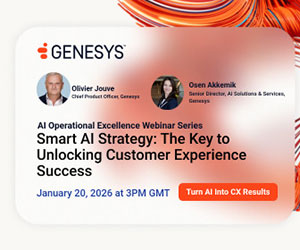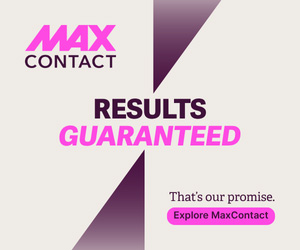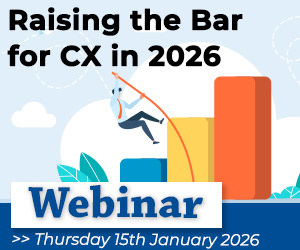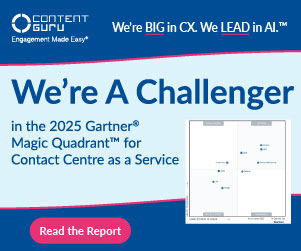Bérengère Deleage of Diabolocom shares insights on how to increase your sales focus in the contact centre.
At a time when payment methods are diversifying, secure telephone payment is proving to be a major asset for companies looking to increase the conversion rate of their outbound call campaigns, reduce shopping cart abandonment on their e-commerce site and offer an end-to-end service within their contact centre.
By coupling your call centre software with a fully secure telephone payment solution, you too can transform your call centre into a smooth, efficient and profitable sales channel!
Encouraging the Customer to Call at the end of the Buying Process
According to Sale Cycle, nearly 80% of all baskets filled online are abandoned before or at the time of payment. The causes of abandonment are multiple but the most frequent are the following:
- The customer discovers at the end of the process that they are obliged to create an account to order
- They consider that the unexpected shipping costs are too high
- The delivery time is longer than expected
- They suddenly have doubts about the items they have chosen, or even about the usefulness of the purchase
- They did not find their preferred means of payment on the site.
By placing a prominent click-to-call button on your payment pages, you increase the chances that customers facing one of these situations will call your customer service/contact centre.
If your call management system is well integrated with the back office and CRM components of your e-commerce site, your advisors can know exactly what items are in the caller’s shopping cart at the time of calling, can recognize the customer (if they already have an account and are logged in) and have access to their customer history.
Armed with these elements, an experienced advisor will be able to remove any customer doubts, reassure them, and then also support the customer to finalize their purchase by paying over the phone.
Inform and Sell at the Same Time
When a customer calls your customer service department to enquire about a product that interests them, being able to guide them through to the final purchase – that is, until payment – can significantly increase your conversion rate.
If it is an e-commerce site for clothing, for example, the advisor who takes the call will answer all the questions the customer may have about sizes, colours, materials, availability, delivery times, etc. The same is true in a B2B environment also.
The problem currently is that once a phone call is completed, there is no guarantee that the customer will actually proceed with the purchase.
At the moment, it’s supposed that a customer will go back to your website and carry out all the steps necessary to finalize an order.
If they have something else to do at time, the desire to purchase could be replaced by other priorities and never materialise.
This risk largely disappears if, sensing the customer is convinced, the advisor offers to take their order by phone right away and takes payment on the call by switching to an integrated telephone payment system.
Once the transaction has been validated, the advisor will resume the conversation with the customer, confirm that the order has been registered, if necessary, specify the delivery time and leave the customer with a positive interaction.
Securing the Sale by Getting the First Down Payment
Relevant for all e-commerce sites, a telephone payment option is particularly valuable for increasing the conversion rate for impulse purchases (fashion, cosmetics, culture…), where the telephone contact allows the advisors to be force of proposal and to push complementary/additional products.
They can also be valuable in the following instances:
- Purchases with a strong technical dimension (automotive parts and accessories, IT, tools, etc.) for which the customer wants to be sure not to make a mistake and needs to be reassured by a specialized advisor on its characteristics
- Purchases that strongly engage the customer financially and emotionally. This is typically the case for tourist stays, the category of online purchases for which customers are most hesitant and inquisitive, and where the ability to accompany the customer over the phone until the first deposit is paid is probably the most decisive. The probability that a customer will reconsider their decision once the deposit has been paid is indeed much lower than if they have not paid anything. On the other hand, if they don’t feel “committed”, the online offer is so overwhelming that they will continue to explore the possibilities and may never come back to your site.
A Fluid and Really Secure Payment by Phone
Whether the purpose is to sell, get back in touch after sending a proposal or a targeted promotional campaign, to follow up after a payment incident, or to collect debts, your call campaigns all face the same difficulty: reaching the people concerned.
If you take care of your calling strategies, using all the data available to you to qualify your targets and call them at the most opportune moment, you can considerably improve the reachability rate of your targets.
When your agents manage to get hold of their prospective customer, don’t lose the benefit of these “successful” contacts! Give your agents the opportunity to complete the transaction during the phone conversation.
Adding an extra step, typically by referring the customer to another channel for settlement, means taking the risk that they won’t, or at least not immediatel,y complete the sale.
Anything that defers payment and requires extra effort from the customer negatively impacts the conversion rate and, consequently, the profitability of your campaigns and your call centre. Paying by phone helps you reduce this risk.
In the sensitive area of delinquencies and collections, not offering payment by phone when a debtor can be reached means that you can be sure that you will have to repeat a significant part of the calls, even when an agreement has been made verbally.
Also, it means exposing oneself to lower and lower rates of reachability because debtors recognize the number calling them or are so suspicious that they no longer pick up when the number displayed is unknown to them…
Number of Customer Queries
In all the use cases presented in this article, the benefits of paying by telephone are largely conditioned by two factors:
- The choice of a truly secure solution, i.e. one that guarantees the confidentiality of the credit card transaction over the telephone and the protection of personal data. A PCI DSS certified solution provides you with this guarantee.
- The integration of the telephone payment system with your call centre solution and your business systems (CRM, website back-office, ERP, billing system…). It is this integration that provides your advisors with all the information they need to conduct the conversation and accompany customers to the end of their transaction. It is also this integration which, at the end of the call, allows you to automate the information feedback in the different business applications, which eliminates tedious manual tasks and saves your agents precious time.
Beyond these two technical factors, it is of course the human factor that makes all the difference.
The technical skills of your advisors, their knowledge of the products, their interpersonal skills, and their mastery of sales techniques over the phone are essential to achieve the objective of finalizing the sale in the most natural and satisfactory way possible for the customer.
Author: Guest Author
Published On: 16th Mar 2021 - Last modified: 11th Jun 2021
Read more about - Guest Blogs, Diabolocom





































